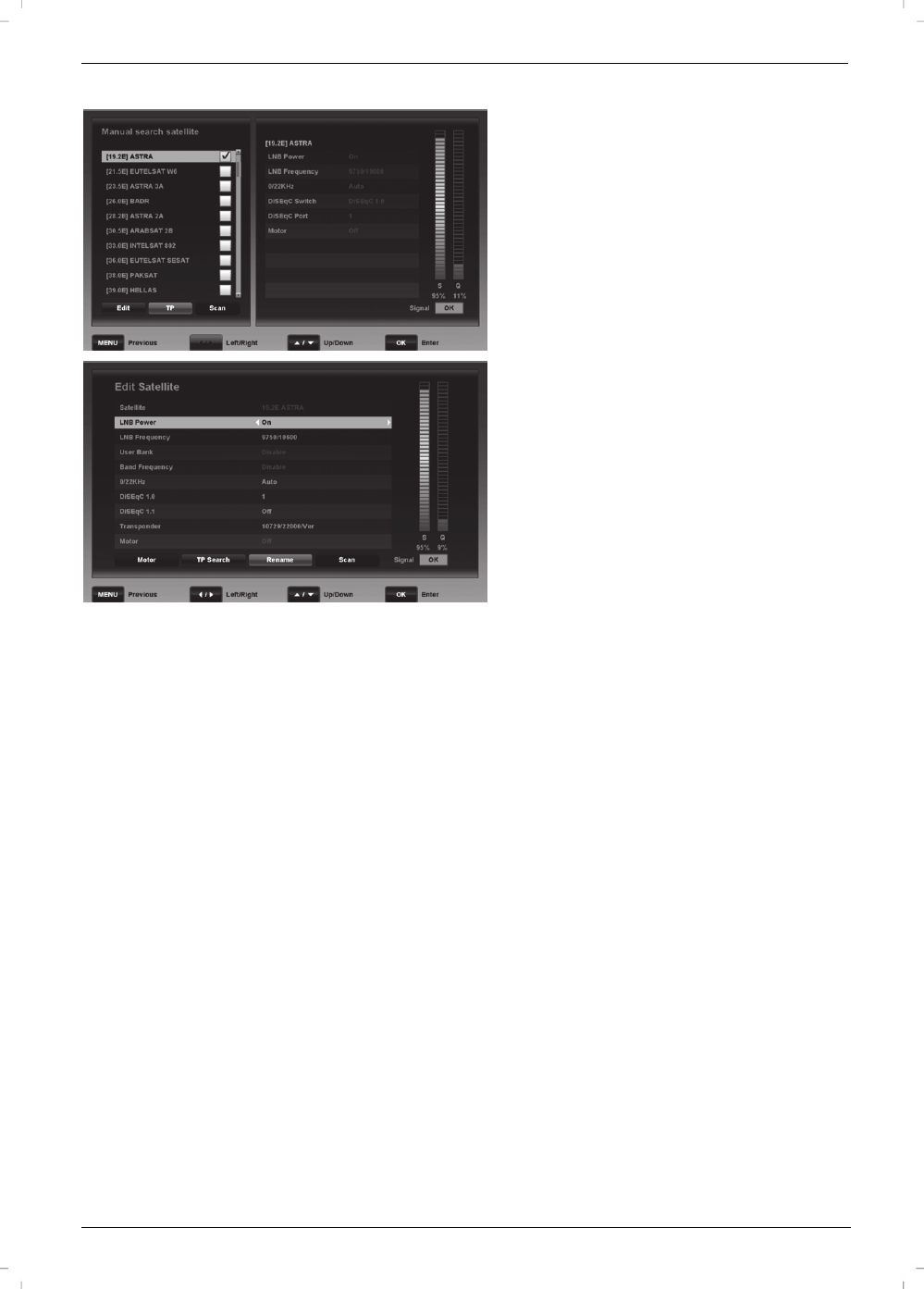Silvercrest SSR 1080 B2 User Manual
Page 89

Satellite Receiver SSR 1080 B2
87 - English
Manual search satellite
This option lets you scan an individual transponder or edit
additional antenna settings. Select the satellite that you want to scan
for new channels and press the OK/ENTER button (25). A new
window with default settings opens on the right hand side of the
screen.
Edit
Press the [Green] button (38) to edit additional antenna settings or
to scan an individual transponder. A new window will open (see
figure opposite).
Signal Level Indicators
The signal strength (S) and quality (Q) are displayed on the right.
Point your antenna so that the Signal Strength and Signal Quality
reach their maximum.
Satellite
Shows the satellite position currently selected.
LNB Power
This option is used to supply power to the LNB and allows polarity
switching.
Note: We recommend that you always have the LNB Power on,
unless you are explicitly instructed to disable this function. This is
occasionally necessary for antennas for larger community
buildings.
LNB Frequency
The default value “9750/10600” is normally good for all
conventional LNBs. Please select the settings below only if explicitly
instructed to do so in the antenna installation manual.
User Bank
You cannot change this option. This setting is adjusted
automatically for Unicable systems.
Band Frequency
You cannot change this option. This setting is adjusted automatically
for Unicable systems.
0/22KHz
The 22 kHz signal is used to switch the frequency band for a
universal LNB (off = Low Band, 22 kHz = High Band). Select
“Auto” to have the system switch automatically. If you are not using
a conventional LNB, you may need to adjust this setting manually
here.
DiSEqC 1.0
DiSEqC 1.0 allows up to four different satellites to be received. If
using DiSEqC 1.0, you can assign a port for every satellite position
selected. If you’re not using DiSEqC 1.0, select “Off”.